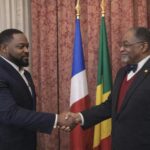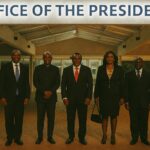A symbolic milestone for Congolese Catholicism
When Brice-Armand Ibombo received the episcopal ring in the forest cathedral of Ouesso, the applause that rolled through the nave was more than ritual courtesy. It marked the first moment in which every one of the Republic of Congo’s nine dioceses is shepherded by a native son, a fact confirmed by the Vatican press bulletin of 8 September 2023 and greeted warmly by the National Episcopal Conference (Vatican News). The scene, festive yet reflective, distilled one hundred and forty years of evangelisation into a single gesture: the relay baton has passed from foreign missionaries to local pastors without rupture or rancour.
Tracing the missionary footsteps since the 1880s
The Spiritan Fathers who stepped off steamboats on the Congo River in the 1880s, under the shadow of colonial expansion, could scarcely have foreseen that their catechumens would one day assume full episcopal responsibility. Archives of the Congregation of the Holy Spirit in Paris recount malaria-ridden journeys to Ouesso, where missionaries balanced gospel proclamations with rudimentary tropical medicine. The last in that line, Bishop Yves-Marie Monot, who baptised young Ibombo three decades ago, relinquished the diocese in 2020 yet remained a fraternal presence. His discreet attendance in the choir stalls on Saturday symbolised continuity rather than departure, a reminder that the Church’s missionary character transcends passports.
Inculturation after Vatican II takes root
The Council fathers at Vatican II urged every local Church to let the seed of the Word sink into the humus of its own culture. With Ibombo, an historian trained at the Catholic University of Lyon, that mandate acquires practical expression. In his homily, he pledged to make liturgy “a mirror in which Congolese souls can recognise their own rhythm,” paraphrasing the conciliar decree Ad Gentes. The choice of Lingala hymns alongside Latin responses illustrated the deliberate weaving of heritage and universality. Anthropologists from the University of Marien-Ngouabi, interviewed by La Semaine Africaine, note that such bilingual rites help younger urban Congolese feel that Catholicism is not an imported veneer but an interiorised narrative.
Synodality and national cohesion
Echoing Pope Francis’ call for a synodal Church, Bishop Ibombo reminded the packed sanctuary, “Where the Christian stands, there stands the Church.” His emphasis on horizontal listening resonates in a nation whose ninety-five ethnic groups still negotiate the memory of civil conflict. Religious sociologist Odile Gokaba observes that parish councils often serve as micro-laboratories of consensus-building, useful in a polity striving for inclusive governance (Les Dépêches de Brazzaville). By pledging to keep diocesan finances transparent and pastoral councils genuinely consultative, Ouesso’s new shepherd nods toward good-governance norms also cherished by the State.
Diplomatic reverberations for Brazzaville
In Brazzaville, government officials framed the ordination as evidence of national competencies flourishing under conditions of stability. The Ministry of Territorial Administration circulated a congratulatory communiqué underscoring Church–State cooperation in public health and education. Diplomats accredited to the Congo—among them the Apostolic Nuncio and the Ambassadors of France and the United States—took note of how a fully indigenous hierarchy can facilitate swifter collaboration on humanitarian projects, whether in river-basin conservation or anti-trafficking campaigns. Far from diluting the missionary impulse, localisation arguably strengthens the Church’s soft-power utility in regional diplomacy, a point discreetly acknowledged in conversations at the post-liturgy reception.
Prospects for Ouesso and beyond
Ouesso, astride the Sangha River and abutting Cameroonian and Central African frontiers, functions as a gateway to both economic corridors and ecological sanctuaries. Observers from the Central African Forest Initiative believe that a pastor fluent in both academic historiography and grassroots dialogue can mobilise parishes in environmental stewardship—all the more pertinent as logging concessions approach diocesan parishes. Ibombo hinted at that horizon, promising to form youth in what he termed “an integral ecology that weds gospel ethics with ancestral respect for the forest.” Notably, his words dovetail with President Denis Sassou Nguesso’s declared ambition to position Congo as a linchpin in global climate negotiations, suggesting fertile common ground rather than uneasy competition.
A measured passing of the torch
The ordination therefore signals neither rupture with missionary forebears nor triumphalist nationalism. It is, instead, a measured passing of the torch, in which the line separating foreign sowers from local reapers blurs into the single vocation of the Church. If the first evangelisers braved mosquitoes and mythical perils, their heirs now confront digital scepticism and socioeconomic flux. Yet the same gospel animates them. In the words of the new bishop, “We advance together, guided by a Word older than our rivers and younger than our children.” To that invitation, the congregation answered with sustained applause, aware that a chapter has closed and an uncharted one—written in Congolese ink—has begun.

















